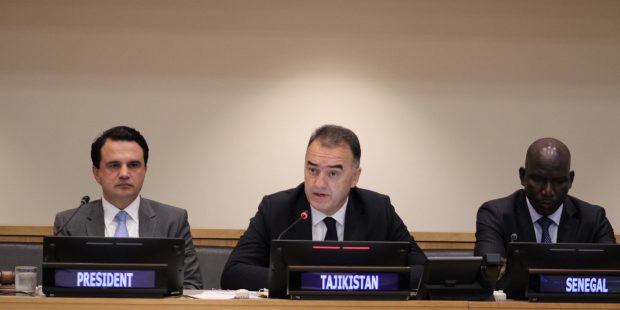DUSHANBE, Tajikistan, September 6. Glaciers in Tajikistan, which provide up to 60 percent of Central Asia’s river flow, are retreating at an alarming pace, Tajikistan’s Minister of Energy and Water Resources Daler Juma said at a high-level session titled Water and Sanitation for Every Child at UNICEF headquarters, Trend reports via the country's Energy Ministry
According to Juma, the melting of glaciers is creating sharp seasonal contrasts, with water shortages in some periods and destructive floods and mudflows in others. He noted that these processes directly affect the resilience of water supply, sanitation, and hygiene systems.
He stressed that rising temperatures are worsening drinking water quality and raising sanitation risks, while extreme weather events increasingly damage aging infrastructure, much of which is over 40–50 years old.
“Unfortunately, the most vulnerable are the rural and mountain populations, where only about 22 percent of people have access to a centralized water supply,” the minister said.
Juma highlighted that, in cooperation with UNICEF and other partners, Tajikistan has equipped more than 200 schools and dozens of medical facilities with modern sanitation units and reliable water supply systems. These efforts, he said, have helped reduce disease risks and improve the health of children and families.
The session formed part of Tajikistan’s chairmanship in UNICEF and was organized to draw greater international attention and partnerships to water and sanitation challenges, particularly in relation to child welfare and the country’s leadership role in advancing the global water agenda.







